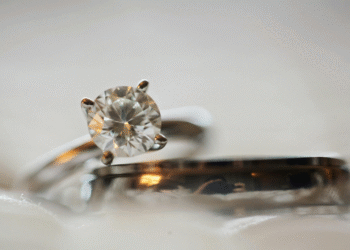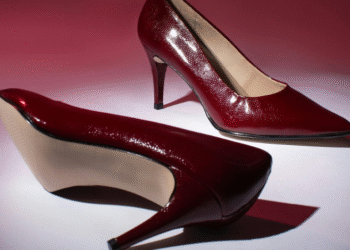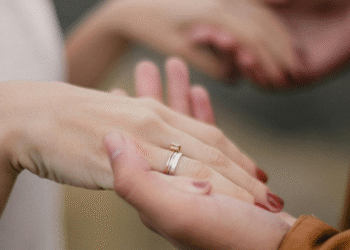Curious about whether hair holds memories. Explore science, myths, and personal stories revealing what strands of hair may retain
Have you ever found yourself holding a lock of hair and wondering if it carries something more than just strands of protein. I did, times agone, when I kept a soft coil from my child’s veritably first hairstyle. It was not just about saving hair, it felt like I was bottling up a piece of time, the joy of that day, and the innocence of those early times.
Let’s not dance around it: scientifically, does hair hold memories in the way your brain does. Memories live in neural connections, shaped and stored in the brain.
But hair is not meaningless. It quietly records biological traces of DNA, toxins, and stress hormones. In that sense, hair is like a timeline of your physical life, even though it cannot replay emotional experiences.
So the answer depends on how you define memories. If you mean literal thoughts and feelings no. If you mean traces of your past, yes.
The Science Behind Does Hair Hold Memories
To understand this better, we should look at what hair really is.
- Composition: Hair is made substantially of keratin, a strong protein. Once it grows out of the crown, it’s no longer a living towel. That’s why cutting it does not hurt.
- Growth process: Hair grows about half an inch each month. That means one inch of hair represents roughly two months of biological history.
- Biological records: Because hair is connected to your bloodstream while growing, it can trap molecules inside. Through hair testing, scientists can detect:
- DNA your genetic code.
- Drugs and toxins substances you’ve been exposed to.
- Stress hormones indicators of anxiety or hardship.
Put simply, hair is not a memory bank but a biological diary. Each strand stores evidence of what your body has experienced, not what your mind remembers.
Analogy: Hair as a Receipt Book
Here’s an easy way to picture it. Think of your brain as a photo album, storing pictures, stories, and emotions. Now, think of your hair as a receipt book. It shows purchases that went through your body without any emotional detail.
You can look at the receipts and say, Ah, I drank too much coffee back then, but you cannot use them to relive the feeling of sipping that latte on a rainy morning.
Spiritual and Cultural Beliefs About Hair
While wisdom takes a clear station, mortal culture tells another story. For centuries, people across the world have believed hair carries energy, memory, or indeed spirit.
- Native American traditions: Numerous lines view hair as sacred, representing strength and spiritual connection. Cutting it’s frequently part of grieving or starting over.
- Hindu rituals: In certain ceremonies, hair is shaved and offered to deities, symbolizing humility, sacrifice, and letting go of self.
- Victorian keepsakes: During the 1800s, it was common to weave a loved one’s hair into jewelry or store it in lockets. These keepsakes were seen as carriers of memory.
- Modern metaphysical practices: Some healers believe hair holds on to energy. Cutting it can be seen as a way of releasing emotional baggage or trauma.
Even if not backed by science, these practices show how deeply humans connect hair with memory and identity.
Hair in Pop Culture and Storytelling
Hair also plays a big role in myths and stories.
- Samson and Delilah: In the Bible, Samson’s strength came from his hair. When it was cut, he lost his power showing hair as a source of identity.
- Rapunzel: Her magical hair symbolized both her confinement and her connection to the outside world.
- Modern films and literature: Locks of hair are often kept as tokens of love, remembrance, or even mystery.
These stories do not tell us that hair literally stores memory, but they show how we project meaning onto it.
Busting Common Myths
Because hair feels mysterious, myths surround it. Let’s clear up the most common ones.
- Myth 1: Hair keeps growing after death.
Truth: It only seems that way because skin recedes. Growth stops once the body dies.
- Myth 2: Scientists can read memories from hair.
Truth: They can read chemicals, but not thoughts or emotions.
- Myth 3: Hair carries your soul.
Truth: Scientifically, no it’s just protein. Spiritually, though, many cultures do see it this way.
A Personal Reflection
When my grandmother passed away, my mother quietly saved a lock of her silver hair. At the time, I did not fully understand.
Later, when I held those beaches, I understood. The hair did not bring back her stories or her laugh, but it stirred a commodity important in me, a sense of closeness, a memorial that she was further than a memory.
That’s when I realized: hair may not hold literal memories, but it can hold deep emotional meaning.
Balanced Conclusion
So, does hair hold memories.
- Scientifically: No. Hair cannot replay moments or store thoughts.
- Biologically: Yes. It records DNA, toxins, and stresses your physical past.
- Culturally and spiritually: Yes, for many people. It symbolizes memory, energy, and identity.
The truth is, hair carries more than we often give it credit for. Not in the way neurons store a memory, but in the way symbols carry meaning. When we keep hair, we keep connection.
So if you’ve ever saved a cinch from a loved one or kept a piece of your child’s hair, know that you’re not holding a memory card, but you’re holding a commodity just as important as a ground between once and present, wisdom and spirit.
FAQS
Does hair store DNA forever?
It can last for decades under the right conditions, though extreme heat or moisture can destroy it.
Can memories be read from hair?
No. Scientists can detect chemicals, but not emotions or personal experiences.
Why do people keep locks of hair?
Because it feels personal and meaningful. It represents connection and remembrance.
Is cutting hair symbolic?
In many traditions, yes. It can mean grief, renewal, or release of the past.
Does hair grow after death?
No. It only looks that way because the skin around it shrinks.
















